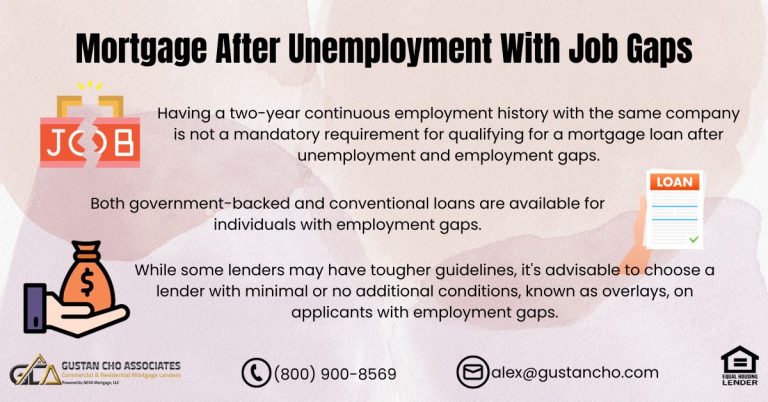This article analyzes the advantages and disadvantages of buying versus renting in California. The state has some of the highest real estate values nationwide and a similarly high cost of living. Expenses across the board—including taxes, real estate costs, and rent—tend to be higher in California than in other states.
On the positive side, workers in California earn significantly more than the national average. In certain regions, real estate values can be double those of other states.
These high property values translate to high rents. For instance, in San Francisco, the average rent for an apartment is around $2,000 per month. Families needing a single-family home often pay upwards of $3,000 per month in many areas across the state. Therefore, renters should carefully evaluate their options when considering buying versus renting in California.
Is it Worth Buying a House in California?
When considering buying versus renting in California, it’s crucial to evaluate your individual circumstances, priorities, and market conditions. Here are key factors to keep in mind:
Pros:
- Appreciation Potential: California’s real estate has historically appreciated over time, particularly in desirable areas like San Francisco, Los Angeles, and Silicon Valley.
- Lifestyle and Climate: Many people are drawn to California for its diverse culture, outdoor recreation, and temperate climate.
- Economic Opportunities: The state offers significant opportunities, particularly in tech, entertainment, healthcare, and other growing industries.
- Tax Benefits: Tax benefits may be obtained by owning a home, which includes deductions for mortgage interest and property taxes.
Cons:
- High Prices: California’s real estate is among the most expensive in the U.S., making it difficult to afford homes in popular regions.
- Cost of Living: Beyond home prices, the cost of living in California is generally high, from groceries to utilities and services.
- Natural Disasters: The region is susceptible to seismic activity, uncontrollable fires, and inundations, which can lead to higher insurance premiums and necessitate extra safety measures.
- Market Volatility: The housing market can be cyclical, so prices may fluctuate significantly.
Before deciding between buying versus renting in California, assess your financial situation, job stability, lifestyle preferences, and risk tolerance.
Thinking About Buying a Home in California Instead of Renting? We Can Help You Get Started!
Contact us today to explore your options and find out if buying a home is the right move for you.
Things Renters Should Consider When Buying Versus Renting In California
There are clear benefits to buying versus renting in California. First-time homebuyers should carefully assess the pros and cons of buying versus renting in California. If you are still deciding whether to stay in the same location for at least five years, renting might be a better choice.
California renters enjoy the advantage of not having to handle maintenance. For instance, if the furnace or air conditioner breaks, renters can call the landlord or property management to handle repairs.
Additionally, landlords often cover the costs of water and waste services. Renters can relocate without concerns about prepping a home for sale, hiring a realtor, or enduring a lengthy closing process. They also need to avoid the routine maintenance required of homeowners.
Buying Versus Renting In California: Negatives of Being a Renter
The drawbacks of renting in California include the need for renters to seek permission from their landlords to modify their living spaces. For instance, adding wallpaper or painting a room requires landlord approval.
In contrast, buying versus renting in California offers financial growth through equity. Homeowners in California build equity by making monthly mortgage payments and increasing property values over time.
Renters face further restrictions, such as needing permission to own pets, which might also require an additional security deposit, or to undertake landscaping and gardening. Additionally, renting does not guarantee housing stability; landlords may choose not to renew leases or could require tenants to vacate, even if they consistently pay rent on time.
Why is it so Hard to Rent an Apartment in California?
Renting an apartment in California can be challenging due to several interrelated factors, including:
- High Demand and Low Supply:
- California’s cities are densely populated, attracting people for job opportunities, education, and lifestyle benefits. The high demand for housing often exceeds the available supply.
- Zoning regulations and restrictions on new developments in many areas limit new housing construction.
- High Cost of Living:
- Due to limited availability, renters often compete for housing. High-demand cities such as San Francisco, Los Angeles, and San Diego are particularly known for expensive rental prices.
- Strict Tenant Screening:
- Property owners often have rigorous tenant screening processes to minimize risks. Applicants need excellent credit scores, proof of steady income, and a positive rental history, making it tough for some to qualify.
- Legislation and Regulation:
- Rent control measures and tenant protection laws can affect the rental market. While these laws protect tenants, they may deter some landlords from renting out their properties, reducing available rentals.
- Income Inequality:
- There is a significant income gap in California. Some high-earning professionals can afford higher rents, which leads to luxury developments. At the same time, those with lower incomes struggle to find affordable housing.
- Natural Disasters:
- Wildfires, earthquakes, and other natural disasters affect housing availability and insurance premiums, creating pressure in certain regions.
These factors combined complicate the process of finding an apartment in the state. When considering buying versus renting in California, remain patient, be flexible with location, and thoroughly prepare application documents to navigate the challenging rental market effectively.
Advantages of Being a Homeowner In California
When comparing buying versus renting in California, homeownership has several benefits. The 2008 Real Estate and Credit Collapse significantly affected the state, causing a drastic decline in property values. Despite this, the real estate market is recovering, and many areas still offer the potential for appreciation as values have not returned to pre-collapse levels.
California provides favorable terms for those buying versus renting. First-time homebuyers can secure a property with a down payment as low as 3%. In comparison, seasoned homebuyers only need 5% for conventional loans. FHA loans offer a 3.5% down payment; VA and USDA loans often require no down payment. A down payment of 10% to 30% is required for non-QM loans.
Moreover, closing costs can often be covered through seller concessions or lender credits, reducing the initial financial burden. Buyers can also benefit from writing off their mortgage interest expenses on their taxes, adding to the financial incentives of buying versus renting in California.
Tired of Renting in California? Find Out How You Can Buy a Home!
Reach out now to learn about home loan options and see if purchasing a home is right for you.
Is it Cheaper to Buy or Rent a House in California?
Whether it’s worth buying a house in California depends on your circumstances, priorities, and market conditions. Here are some factors to consider:
Pros:
- Appreciation Potential: California’s real estate has historically appreciated over time, particularly in desirable areas like San Francisco, Los Angeles, and Silicon Valley.
- Lifestyle and Climate: Many people are drawn to California for its diverse culture, outdoor recreation, and temperate climate.
- Economic Opportunities: The state offers significant opportunities, particularly in tech, entertainment, healthcare, and other growing industries.
- Tax Benefits: Tax benefits may be obtained by owning a home, which includes deductions for mortgage interest and property taxes.
Cons:
- High Prices: California’s real estate is among the most expensive in the U.S., making it difficult to afford homes in popular regions.
- Cost of Living: Beyond home prices, the cost of living in California is generally high, from groceries to utilities and services.
- Natural Disasters: The region is susceptible to seismic activity, uncontrollable fires, and inundations, which can lead to higher insurance premiums and necessitate extra safety measures.
- Market Volatility: The housing market can be cyclical, so prices may fluctuate significantly.
Before deciding, assessing your financial situation, job stability, lifestyle preferences, and risk tolerance is crucial.
Homeownership Costs of Buying Versus Renting in California
As a homeowner, there are more financial obligations to consider beyond just maintenance. Property taxes, homeowner’s insurance, and potential Homeowners Association (HOA) fees are all additional costs that should be factored into your budget. These ongoing expenses can add up and impact your overall financial stability. It’s important to be aware of all the associated costs of homeownership in order to make informed decisions and manage your finances effectively.
Rent Control Laws
In California, certain areas have implemented regulations on rent control that restrict the yearly growth in rent. As a result, the value analysis of renting versus purchasing a property may experience a significant shift, with renting becoming a more desirable option in those particular areas. By acquainting yourself with the rental laws of your locality, you can make an informed decision on whether to rent or buy property in that region.
Potential for Home Appreciation With Buying Versus Renting in California
Buying a home in California involves much more than just finding a place to live. It is an investment opportunity that should not be overlooked. Several California markets offer a potential for home value appreciation that can yield a substantial return on investment. Renters who fail to take advantage of this opportunity can miss out on potentially lucrative financial benefits.
Mortgage Interest Deductions
The matter of mortgage interest deductions merits a more thorough examination, despite being only briefly discussed. In California, homebuyers can avail themselves of the opportunity to deduct their mortgage interest expenses, which can greatly reduce their tax burden. It is crucial to fully comprehend the implications of this tax benefit in order to make informed decisions regarding the financial differences between renting and buying a home.
Flexibility and Mobility
One of the benefits of renting a property is the increased amount of flexibility it can provide, particularly for individuals who may need to relocate for various reasons such as work or personal matters. Conversely, selling a home can often be a costly and time-consuming process, which may present a disadvantage for homeowners who are required to move quickly.
Job Stability
When contemplating the choice between renting and buying a home, it is imperative to take into account the stability of your employment. If your job is not secure, then embarking on the financial commitment of owning a home could be a risky undertaking. Conversely, if your employment situation is stable, purchasing a home can be a well-advised financial move. Therefore, it is vital to evaluate your job security before making a decision about homeownership.
Lifestyle Considerations
When deciding whether to buy or rent a home, it’s important to take into account various lifestyle considerations. While owning a home can provide a sense of stability and belonging within a community, renters may appreciate the freedom to relocate without the added responsibilities of maintaining a property. Ultimately, the decision to purchase or rent a home should align with personal lifestyle preferences and long-term goals, as it can have a significant impact on one’s overall quality of life.
Effect of Inflation
Inflation holds significant implications for the real cost of fixed mortgage payments over extended periods. Homeowners stand to benefit from this trend as the value of their fixed mortgage payments decreases relative to escalating wages and other expenses. In contrast, rents are often susceptible to annual increases, leaving renters vulnerable to the impact of inflation. Therefore, individuals seeking financial stability and predictability may find fixed-rate mortgage payments to be a more attractive option.
Qualifying For a California Home Loan
Consumers with documented income in California will qualify for a California home loan. Many renters assume they do not qualify for a California home loan because of increasing California housing prices and the down payment requirements. A down payment is minimal. If the renter does not have the necessary down payment, it can be 100% gifted by family members or relatives.
Many landlords in California will require security deposits from renters. Some require the first month’s rent, the last month’s rent, plus an additional month for the security deposit. This is a large amount. Often the security deposit the landlord is asking will be enough for a down payment for a home purchase in California.
California renters with documented income, please contact John Parker, NMLS 124935, at (800) 900-8569. Text for a faster response. You can also email John at alex@gustancho.com to see how much home you qualify for in California and how much you can afford. The John Parker Mortgage Team at Gustan Cho Associates is available seven days a week, evenings, weekends, and holidays.
FAQs: Pros and Cons of Buying Versus Renting in California
- Why is buying a house in California expensive? Due to high demand and limited supply, California’s real estate prices are among the highest in the United States. High property taxes, stringent zoning laws, and building regulations make development costly, contributing to high home prices.
- Is renting more affordable than buying in California? In California, renting is more cost-effective than purchasing a property, particularly for those who relocate often or are uncertain about their permanent residence. However, with high rental prices in many cities, long-term renters miss out on potential appreciation and equity that homeowners gain.
- What are the benefits of buying a house in California? Owning a home can lead to potential appreciation in value, tax benefits such as mortgage interest deductions, and the freedom to modify and personalize your living space. Additionally, building equity over time can offer stability against rising rental costs.
- What challenges might I face when buying a home in California? High upfront costs include the down payment, closing costs, and fees. There are also ongoing expenses such as maintenance, property taxes, and insurance. Additionally, there’s a vulnerability to natural disasters, which could increase insurance premiums.
- Is it difficult to rent an apartment in California? Yes, due to high demand and low supply, strict tenant screening requirements, and expensive rents driven by high living costs and luxury developments.
- Are there rent control laws in California? Some areas have rent control measures limiting the annual rent increase, protecting tenants, and influencing landlords’ willingness to rent, affecting the availability of units.
- How does lifestyle impact the decision to buy or rent? Renting provides flexibility for those needing to relocate frequently. At the same time, homeownership offers stability and a stronger sense of community. Your personal and financial goals should align with renting or buying.
- What impact does job stability have on homeownership? Stable employment supports the financial commitment of homeownership. At the same time, job uncertainty makes renting a safer choice due to the lower financial risk.
- What financial requirements are needed to qualify for a California home loan? A stable income and creditworthiness are crucial. Down payments can vary, but first-time homebuyer programs, VA loans, and family gifts can help meet the requirements. Consult a loan officer to determine your specific qualifications.
- How does inflation affect renting vs. buying decisions? Homeowners with fixed-rate mortgages benefit as mortgage payments become relatively cheaper over time due to inflation. Renters, however, face annual rent increases, often making fixed mortgage payments a more predictable option.
This blog about the Pros and Cons of Buying Versus Renting in California was updated on May 9th, 2024.
Ready to Own a Home in California? Let’s Compare the Benefits of Buying Versus Renting!
Contact us today to see how buying a home compares to renting and learn about your mortgage options.










